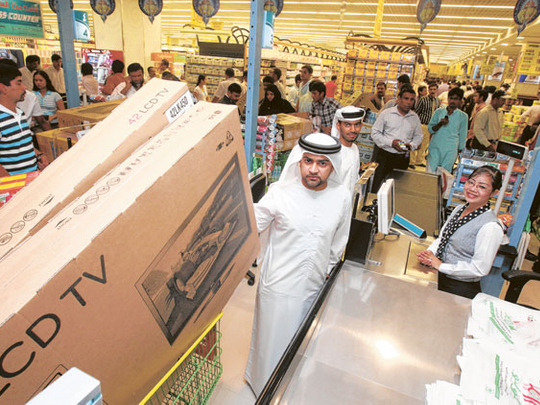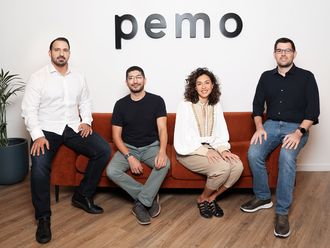
Dubai: Growth in private sector business activity in the UAE plummeted to a 15-month low in August as output stagnated and new order growth fell to its lowest rate in a year, according to the HSBC Purchasing Managers' Index (PMI) released yesterday.
Analysts predict the negative trend will continue and gradually improve by November.
The HSBC PMI, which measures business activity of 400 private firms in the UAE across manufacturing, services, construction and retail sectors, dropped to 50.9 points in August from 53.3 points in July. In marked contrast, the PMI was 57.5 points in April — the highest level recorded since the index was started in August 2009 —with 50 being the no-change mark.
"It's a disappointing reading that strongly suggests the pick-up in growth apparent in the first half of the year has lost speed," said Simon Williams, Chief Economist for Mena at HSBC.
New orders for UAE non-oil private sector companies hit a one-year low of 53.5 points in August.
The easing trend in new business growth was reflected by firms' output levels, which were unchanged on the month, the report stated.
No growth
It was the first time in over a year and a half that the sector did not register growth in output since the survey started.
UAE non-oil private sector selling prices fell in August after eight consecutive months of output price inflation while input cost prices were at a seven-month low in August, yet the rate of increase was considerable, the survey showed.
"That output prices fell in August even though input costs continued to rise may be welcomed by consumers but underscores the difficulty firms face protecting their margins in an economy that still has substantial excess capacity," Williams said.
Overall the findings of the survey can be attributed to the tendency of caution during uncertainty and represent the general mood of the non-oil private sector in the UAE, analysts said.
"The purchasing managers were cautious as the new orders declined gradually since April 2011. The decline in demand growth coupled with uncertainty of future prospects prompted the managers to improve their working capital efficiencies, reduce their inventories and maintain minimum stock," said Kirti Timmanagoudar, Director of Business & Financial Services at Frost & Sullivan, told Gulf News.
The shrinking of new orders could also be attributed to purchasing managers who insist on shorter delivery cycles, which could reduce or postpone new orders, and Ramadan coming in August, she added.
However, the reduction in prices is not sustainable.
"While it appears that the rising input costs are not passed on to the end customer, it may not be entirely true as there is some lag.
"Most manufacturing companies, especially in a situation of oversupply, wait for a quarter or two before raising their output prices," she said.
Debate
Some manufacturing companies partially disagreed with the results of the PMI report.
Ducab, the cables manufacturer, said August was "not a bad month at all" in terms of volumes produced and invoicing.
"Indeed the business has experienced some cyclical pressure and the margins have not kept up to levels that we would have liked them to be however they are comparable with the forecast figures," said Colin McKay, general manager of sales and marketing at Ducab.












